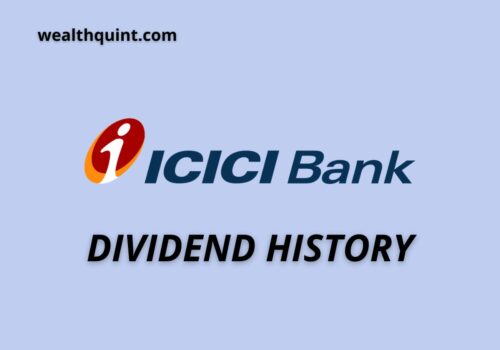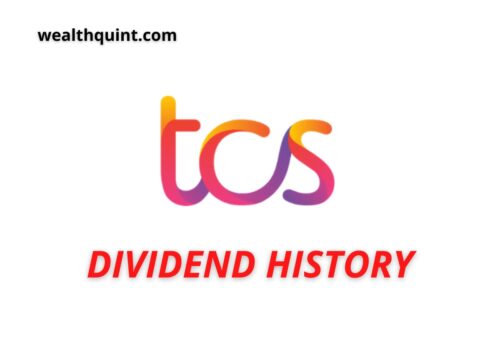Tata Motors is an Indian multinational automotive company that was founded in 1945 by JRD Tata. Wipro’s headquarter is in Mumbai, Maharashtra, India.
Tata Motors’ key products include Automobiles, Luxury vehicles, Commercial vehicles, Automotive parts, Pickup trucks, SUVs. The key services offered by Tata Motors are Automotive finance, Vehicle leasing, vehicle service.
A dividend is a small form of payment given out of the profits to shareholders of a company as a form of gratitude. They are nowadays considered an important test to see the company’s strength and determine the enterprise as a stable corporation.
They have even become a form of secondary income for investors that want a maximum return from their portfolio. This article will cover everything you need to know about dividends before buying shares of a company.
Tata Motors Dividend History
| Announcement Date | Dividend (Rs) | Dividend Type | Dividend (%) | Ex-Date |
| May 30, 2016 | 0.2 | Final | 10 | July 18, 2016 |
| May 29, 2014 | 2 | Final | 100 | July 9, 2014 |
| May 29, 2013 | 2 | Final | 100 | July 30, 2013 |
| May 29, 2012 | 4 | Final | 200 | July 18, 2012 |
| May 26, 2011 | 20 | Final | 200 | July 19, 2011 |
| May 27, 2010 | 15 | Final | 150 | August 10, 2010 |
| May 29, 2009 | 6 | Final | 60 | August 3, 2009 |
| May 16, 2008 | 15 | Final | 150 | June 16, 2008 |
| May 18, 2007 | 15 | Final | 150 | June 1, 2007 |
| May 19, 2006 | 13 | Final | 130 | June 23, 2006 |
| May 17, 2005 | 12.5 | Final | 125 | June 23, 2005 |
| May 20, 2004 | 4 | Final | 40 | June 22, 2004 |
| January 14, 2004 | 4 | Interim | 40 | February 12, 2004 |
| May 27, 2003 | 4 | Final | 40 | June 30, 2003 |
The First time Tata Motors gave dividends in 2003 of Rs. 4. The Last time Tata Motors was given a Dividend was on May 30, 2016, of Rs. 0.2.
Is Dividend Good For The Company?
Yes, a dividend is good for the company because it makes it more attractive to the shareholders. The return of profits can be seen as a thank you note for the investors to trust the company. Dividends are a strong sign that the company’s balance sheet is strong and positive.
Companies that pay dividends with consistent returns tend to be highly valued stocks with high market share rates. High stock price means larger market capitalization, and the company has a larger credit score to take on debt.
Who Is Eligible For A Dividend?
Any shareholder owns a company’s stock for more than one business day before the ex-date dividends are paid out.
How Do Dividends Get Paid?
Dividends are paid to the shareholder through a cheque that the shareholder can encash. A shareholder can also apply to receive the dividends in the form of additional company stocks. The stock-based Dividend is called a DRIP (Dividend Return Investment Plans) and is considered an additional investment.
Why Do Companies Not Pay Dividends?
Small companies or startups do not pay dividends to their shareholders because they tend to be growing firms. They need many investments to fuel the expansion and become bigger as a company. Only highly well-established companies with no need for investment for future expansion tend to pay dividends.
What Is The Dividend Announcement Date?
The company management comes together to announce when the company will pay dividends to the shareholders. The data then has to be approved by the shareholders before encashing their dividend cheques.
Types Of Dividend
There are three types of Dividends that shareholders can receive-
- Cash Dividends: You can receive these in the electronic transfer or the form of a cheque.
- Property Dividends: A shareholder can receive one of the company’s assets as a form of property dividends.
- Stock Dividends: These are additional stocks issued to the shareholder as a form of dividend return.
What Is The Ex-Date Of The Dividend?
The ex-date of the Dividend refers to the specific date before which a new shareholder must apply for a Dividend. If the shareholder buys the stock on the day or the ex-date of the Dividend, the seller will get a dividend. It is essentially a deadline for the new shareholders to come on board to get a dividend.




